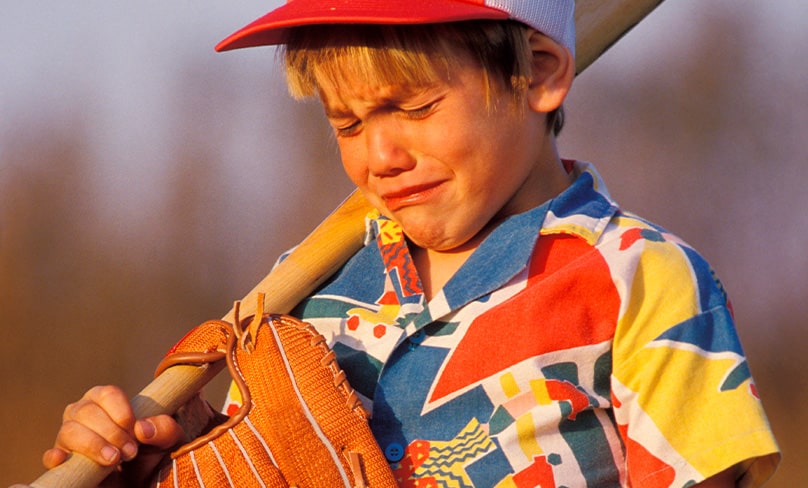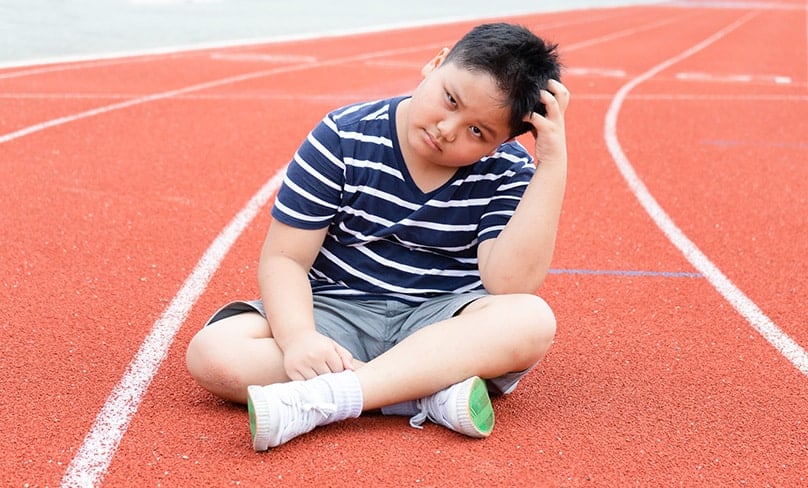
One in every two Australian girls are quitting sport by the age of 15 and the statistics aren’t much better when it comes to their male counterparts.
Latest research on teenage participation nationwide has found young people are turning their backs on sport for a variety of reasons including anxiety, pressure to perform, a lack of confidence, the cost of sport right through to having too much homework.
And experts claim we are now at crisis point and face generations of inactive kids and in turn adults.
The 2019 Australian Youth Confidence Report reveals the main group most likely to quit sport for good are the 15-17 year old girls because they feel “they aren’t good enough or have too much homework”.
However across the board both males and females of all age groups are deciding not to participate and confidence around exercise was one of the most commonly discussed reasons.
So why are teens dropping out:
1. It’s not fun any more
2. Anxiety around pressure to perform
3. Perceived lack of competence
4. Time demands
5. Cost
Focusing on fun rather than being first

Australian Catholic University deputy head of Behavioural and Health Sciences Associate Professor Gert-Jan Pepping said teenagers need to know that you don’t have to be perfect to compete.
He said participation nurtures perseverance and resilience, essential skills young people need now and into the future for both their physical and mental well-being.
We should be treating kids sport as though their lives depend on it – because it does, he warned.
“Forget about creating the next Olympian, NRL or AFL star, what’s critically important is that the environment in which they are immersed, is one which engages, nurtures and motivates them to develop a lifelong love of movement,” he said.
“Coaches and parents alike need to redefine success and make sport fun again.
“We all know the benefits of developing good habits in childhood. Physical activity is one of the most important parts of a child’s health, well-being and learning.
“However many are not getting this at an early age and are missing out on developing lifelong habits. If you don’t learn them and become fluent in childhood, physical literacy plummets in adulthood.”

Executive Officer Catholic Schools Sports Services Kym Skerritt agreed teen sport needs to be given an overhaul and its long-term viability in its current form assessed.
She said they are seeing a gradual decline in the numbers of young people wanting to play sport and the system needs a re-think.
“It’s not only the numbers of kids that are changing, but their attitudes to playing sport,” she said.
“There is so much competition for young people’s time that when they do manage to fit sport in they are faced with so much pressure to win.
“We really need to change the way we approach it and place the emphasis on participation and enjoyment rather than winning at all costs.”
Alarmingly, Dr Pepping said that girls were typically dropping out of sports as young as 11 and boys a little later around 15.
He said there is so much competition for a young person’s time today that sport comes quite a long way down the list in a young person’s schedule.
Dr Pepping said parents should grill junior sporting clubs before signing their children up.
He has come up with a five-point checklist to ensure young players are placed in the ideal environment to fall in love with sport.
“Developing physical literacy through sport can help build confidence in movement, but the coaching environment must prioritise enjoyment,” he said.
“The spotlight has to be taken away from winning and instead focused on participation.”
He said parents should be asking the following questions which will tell you whether the club values participation or winning.
1. What is their attitude towards success? Is it win at all costs or participation that counts?
2. How are the registration fees spent?
3. What are their links to the community?
4. What is the player turnover?
5. If they have a senior club, what is the emphasis on A grade success?
How Can We Keep Kids Playing Sports?

So, what can we, as parents and educators, do to keep our kids participating throughout their childhood and adolescence?
We can’t single-handedly change youth sports as we know it, but if we start practicing good, positive, supportive behaviour, with the focus on fun, it’s a great place to start.
1. Make sure it’s fun – If running through the parent “tunnel” or chanting silly cheers in the dugout is what keeps it fun, then make sure to encourage those things. Sports get serious soon enough.
2. Be flexible – Let your child choose the sport (not you!) and let them change their mind! Remember, this is not a lifelong decision and being flexible may just let your child find ‘their thing’. Stick to the rule of thumb: commit to a season, not to a career.
3. Allow your child to play at the level they choose – Just because ‘everyone’ else is playing Class I soccer or is on a travel baseball team, that doesn’t mean it’s right for every child.
4. Help your child understand why you want them to play – Make sure they know it’s not about the sport per se, but rather it is about learning perseverance, teamwork, sportsmanship, making friends, having fun and being healthy.
5. Stay positive! – No matter what happens, make sure to avoid making negative statements about your child’s coaches, the refs, other players or your own child’s performance. This will help them stay motivated and excited about playing.

6. Give young athletes techniques for coping with pressure – Such as re-framing pre-race nerves as ‘excitement’.
7. Prioritise enjoyment in training and competition – Particularly for younger athletes and kids just starting out in the sport.
8. Praise effort more than outcomes – The feeling of not being good enough often stems from having too big an emphasis on performance targets, results and medals.
9. Get everyone cheering for every child’s successes, regardless of whose team they’re on – The object of the game is to encourage participation.
10. Help them to build great relationships – Children (and adults too) gravitate to activities where they have friends. When relationships are strong, children feel positive and want to engage.
